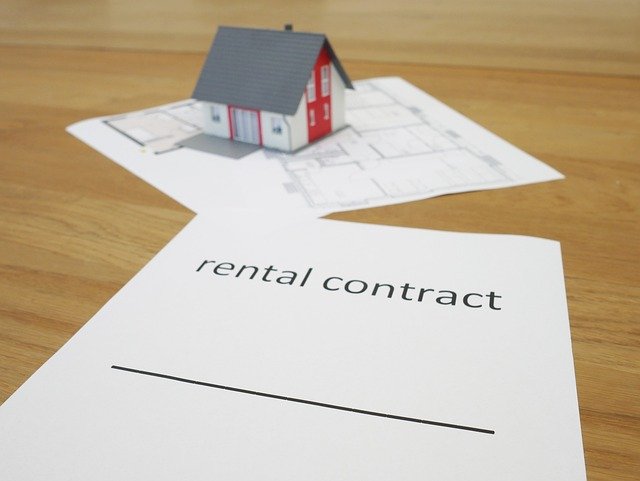Housing Associations in London: What to Know
Housing associations in London provide affordable rental and ownership options, but understanding how they work is key before applying. This guide explains the role of housing associations, typical eligibility requirements, and the steps involved in registering with your local provider. It also covers how priority is assessed, what documents are usually required, and what alternatives exist if waiting times are long. With this information, you’ll be better prepared to navigate the system and explore the housing choices available in the capital.

London’s housing crisis has made affordable accommodation increasingly scarce, with housing associations playing a crucial role in providing homes for those who need them most. These organisations operate as social landlords, managing properties that are let at below-market rates to eligible tenants. With over 170 housing associations operating across London, they collectively house more than 800,000 people in the capital.
How Housing Associations Operate in London
Housing associations function as independent, not-for-profit organisations that develop, own, and manage affordable homes. They work closely with local councils and receive funding from Homes England to build new properties and maintain existing stock. Unlike private landlords, housing associations reinvest any surplus back into their housing programmes, enabling them to keep rents affordable and improve services for tenants.
These organisations typically offer three main types of accommodation: social rent properties (the most affordable option), affordable rent homes (up to 80% of market rate), and shared ownership schemes. Each housing association operates within specific boroughs or areas of London, though some larger associations work across multiple areas.
Eligibility Rules and Priority for Housing Association Homes
Eligibility for housing association properties depends on several factors, including your connection to the local area, household income, and housing need. Most housing associations use a points-based system that prioritises applicants based on their circumstances. Those facing homelessness, living in overcrowded conditions, or with serious medical needs that affect their housing typically receive higher priority.
You must usually be aged 18 or over and have a legal right to remain in the UK. Many associations also require applicants to have lived or worked in their operational area for a specified period, often between one to five years. Income thresholds vary between associations, but generally, your household income should not exceed £90,000 annually for most social housing options.
Steps to Apply for a Housing Association Property
The application process typically begins with registering on your local council’s housing register, as most housing associations work through these centralised systems. You’ll need to complete a detailed application form providing information about your current housing situation, income, and household composition.
Once registered, you’ll be placed in a priority band based on your circumstances. When suitable properties become available, they’re advertised through choice-based lettings schemes, allowing you to bid for homes that match your needs. The application with the highest priority in the relevant band typically receives an offer, though this process can take considerable time due to high demand.
Documents Usually Required During the Application Process
The application process requires comprehensive documentation to verify your eligibility and circumstances. Essential documents include proof of identity (passport or driving licence), evidence of your right to remain in the UK, and confirmation of your current address through utility bills or tenancy agreements.
Financial documentation is equally important, including recent payslips, bank statements, and benefit letters if applicable. If you’re claiming priority due to medical reasons, you’ll need supporting evidence from healthcare professionals. Those fleeing domestic violence may require letters from support agencies or police incident numbers.
| Housing Association | Average Weekly Rent (1-bed) | Average Weekly Rent (2-bed) | Key Areas Covered |
|---|---|---|---|
| Peabody | £140-180 | £160-220 | Central, South, and East London |
| Clarion Housing | £130-170 | £150-200 | West and South West London |
| L&Q | £135-175 | £155-210 | East and South East London |
| Sanctuary Housing | £125-165 | £145-195 | Various London boroughs |
| Metropolitan Thames Valley | £140-185 | £165-225 | West London and surrounding areas |
Prices, rates, or cost estimates mentioned in this article are based on the latest available information but may change over time. Independent research is advised before making financial decisions.
Alternatives to Housing Associations for Affordable Housing in London
While housing associations provide valuable affordable accommodation, several alternatives exist for those seeking lower-cost housing options. Private rented sector schemes, such as those offered by some councils, can provide temporary affordable accommodation while you wait for permanent housing.
Shared ownership schemes, available through various providers including housing associations, allow you to purchase a share of a property while paying rent on the remainder. Build-to-rent developments increasingly offer affordable units alongside market-rate properties, while some employers provide key worker housing schemes for essential service employees.
Co-living spaces and house shares present another option, particularly for younger professionals, offering furnished accommodation with shared facilities at competitive rates. Additionally, some boroughs operate their own housing companies that provide intermediate housing options between social housing and private rental.
Navigating London’s housing association system requires patience and persistence, but these organisations remain one of the most reliable sources of genuinely affordable accommodation in the capital. Understanding the application process, maintaining accurate documentation, and exploring multiple housing associations can significantly improve your chances of securing suitable accommodation through these vital community resources.




